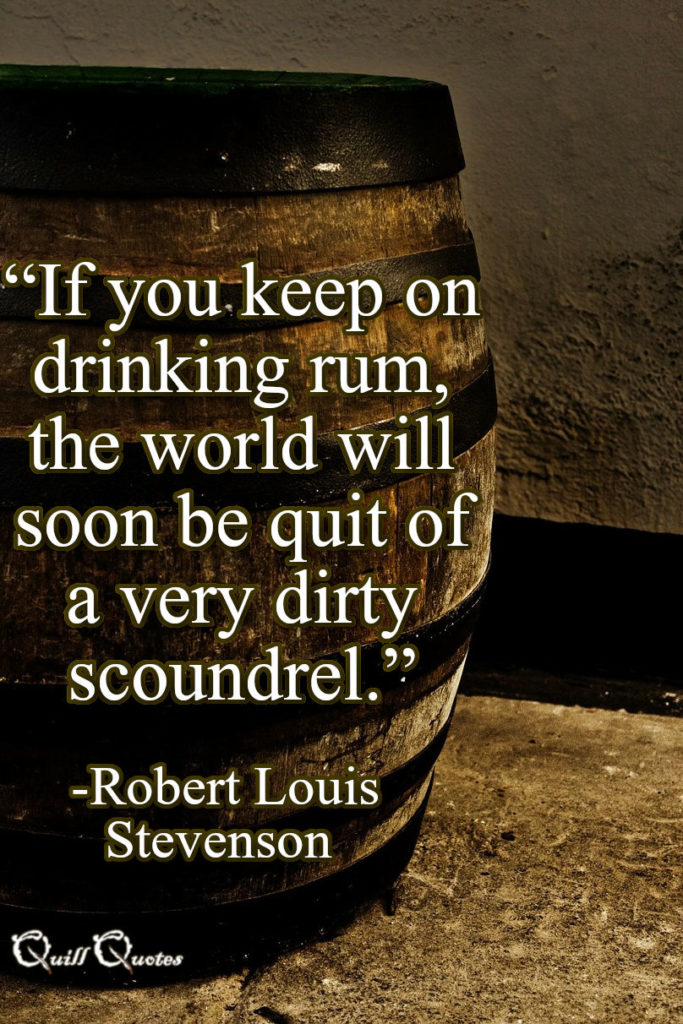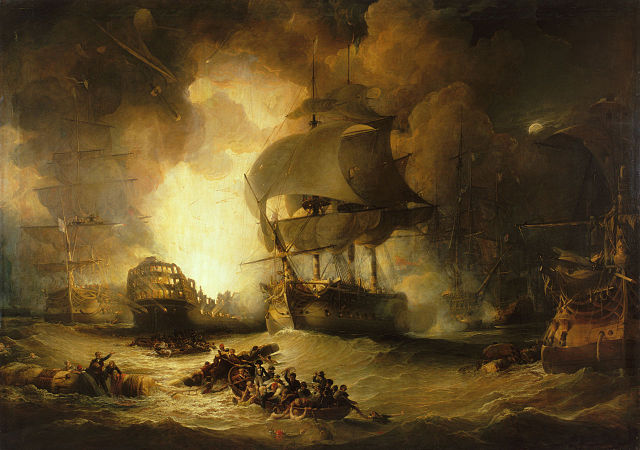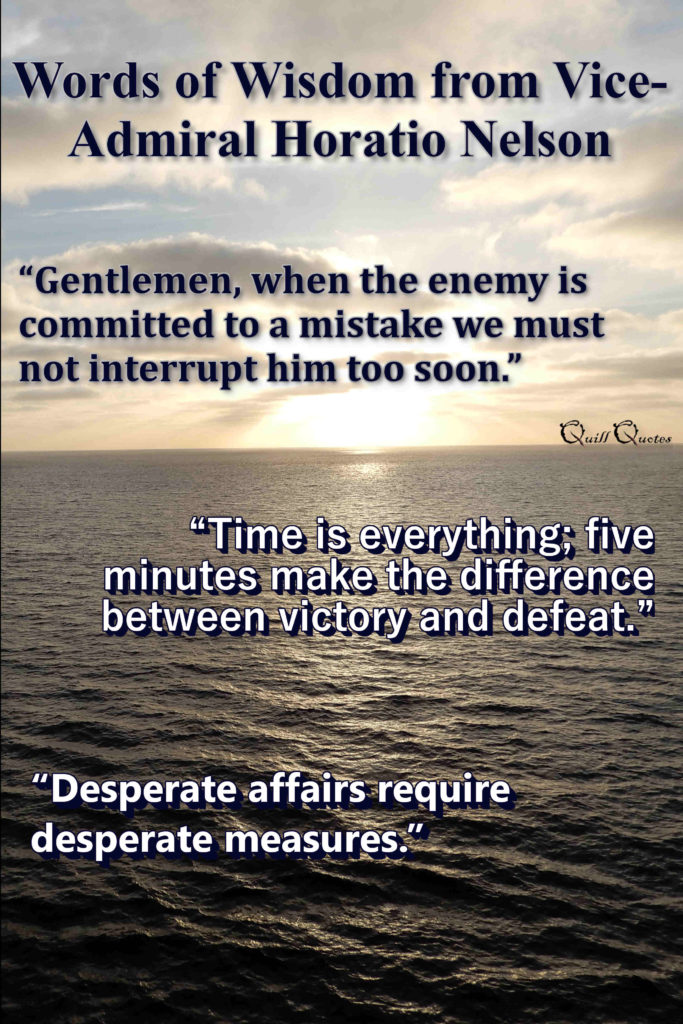There is always much to learn from quotes and their historical significance. Read on for a collection of quotes and general history from July 28th – August 3rd.

July 28, 1945
“Sometimes bad luck hits you like in an ancient Greek tragedy, and it’s not your own making. When you have a plane crash, it’s not your fault.”
– Werner Herzog
On July 28, 1945, a B-25 Mitchell bomber crashed into the Empire State Building’s 79th floor. The aircraft was on a routine personnel transport mission from Bedford Army Air Field to Newark Airport. On approach for landing, the pilot became disoriented in heavy fog and crashed into the north side of the building. The accident killed all 3 aircraft occupants and 11 people in the building. The crash also caused an elevator to fall 75 stories with elevator operator Betty Lou Oliver surviving the fall. This remains the world record for the longest survived elevator fall! Thankfully, the Empire State Building’s structural integrity wasn’t compromised, the fire was able to be put out, and the building repaired.
July 29, 1958
“What we do at NASA is inspiring. It’s reaching, it’s visionary, and it inspires people on Earth to try hard things.”
– John M. Grunsfeld
The National Aeronautics and Space Administration (NASA) was established on July 29, 1958. U.S. Congress and President Eisenhower were quick to establish NASA in response to the Soviet launch of Sputnik 1, the world’s first artificial satellite. NASA began operations on October 1, 1958, nearly a year after Sputnik 1’s launch, by absorbing the existing National Advisory Committee for Aeronautics (NACA). Thus, NASA began with a $100 million budget, 3 research labs, 2 test sites, and 8,000 employees. NASA has since become a worldwide leader in civilian space research and exploration, leading to numerous technologies now bettering life on Earth. For example, memory foam, freeze-dried food, CMOS image sensors used in digital cameras, and LASIK eye surgery were all made possible by NASA research!

July 30, 1937
“Death solves all problems – no man, no problem.”
– Joseph Stalin
On July 30, 1937, NKVD Order No. 00447 was approved by the Politburo during the Great Purge in the Soviet Union. The order was called “About repression of former kulaks, criminals, and other anti-Soviet elements”, and was issued by the People’s Commissariat for Internal Affairs (NKVD) to arrest and secure the anti-Soviet social elements. Numerous troikas, or 3-person judge/juries, were created and two categories were created for sentencing: The First category was subject to death by shooting and the Second category was sent to GULAG correctional-labor camps. By the end of 1938, an estimated 680,000 to 1.2 million Soviet citizens were killed in the Great Purge.
July 31, 1970
“Don’t talk to me about Naval tradition! It’s nothing but rum, sodomy, and the lash.”
– Winston Churchill
July 31, 1970, was the last day the British Royal Navy issued sailors a daily rum ration, or tot. Known as Black Tot Day, this marked the end of one of the navy’s longest-standing traditions. Rum had been served in the Royal Navy since 1655 when it was made equivalent to beer to save space aboard ships. To combat drunkenness, the rum ration was reduced several times over the years. However, 71ml per day, a little less than 2 shots, was still issued daily in 1970! The decision to end the rum ration was made in the House of Commons on January 28, 1970, becoming known as the “Great Rum Debate”.

August 1, 1944
“Though it be to die, we will fight. We will fight not for ourselves but for future generations. Although we will not survive to see it, our murderers will pay for their crimes after we are gone. And our deeds will live forever.”
– Itzhak Katzenelson
The Polish resistance began the Warsaw Uprising on August 1, 1944, the largest single military effort undertaken by a resistance movement during World War II. The uprising was timed to coincide with the German retreat ahead of the Soviet advance, with hopes to liberate Warsaw and establish Polish sovereignty before the Soviet Union assumed control. However, the Soviet Red Army slowed its advance and the uprising drug on for 63 days with little external support, ending in German victory. The lack of Soviet reinforcements or air support led to allegations that Joseph Stalin purposefully slowed the advance to allow the Polish resistance to be defeated. By the time the Germans were finally forced out of Warsaw in January 1945, more than 85% of the city was destroyed and an estimated 200,000 Poles had been executed.
August 2, 216 BC
“Let us ease the Roman people of their continual care, who think it long to await the death of an old man.”
– Hannibal
On August 2, 216 BC, the Battle of Cannae took place between Carthage and Rome during the Second Punic War. Led by Hannibal, the army of Carthage used a pincer movement, or double envelopment, to surround the much larger Roman army. The Romans were utterly defeated; depending on the historical account, casualties ranged from 67,500 to nearly the entire force of 86,000 men. In comparison, Carthage only lost an estimated 5,700 of its 50,000 men! The battle is now regarded as both one of the greatest tactical victories in military history and one of the worst Roman defeats. Despite the demoralizing defeat, Rome refused peace talks and fought Carthage another 14 years. Upon finally defeating Hannibal at the Battle of Zama, Rome established itself as the dominant power in the Mediterranean for years to come.

August 3, 1798
“If a man consults whether he is to fight, when he has the power in his own hands, it is certain that his opinion is against fighting.”
– Sir Horatio Nelson
The Battle of the Nile, between the British and French navies, ended in a decisive British victory on August 3, 1798. The British fleet, led by Rear-Admiral Sir Horatio Nelson, had pursued the French across the Mediterranean for several months. Only catching up after the French army under Napoleon Bonaparte had already been deployed in Egypt. After 3 days of fighting, the British Royal Navy had destroyed or captured 11 French ships of the line and 2 frigates, with only 4 French ships escaping. The battle flipped the balance of power between the two navies, giving the Royal Navy the upper hand for the remainder of the War of the First Coalition.


In case you missed last week’s quotes, see History July 21st – 27th.
To never miss a Quill Quotes post, please subscribe to our free Email Newsletter and follow us on Social Media.
Leave a Reply